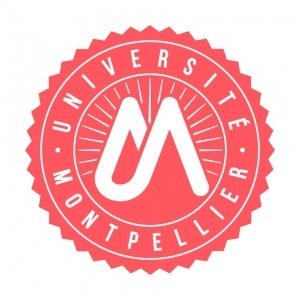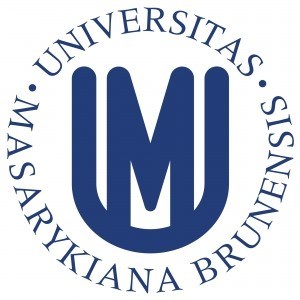Photos of university / #vubrussel
The International Biomedical Engineering Bachelor's degree at the Free University of Brussels offers an innovative interdisciplinary program designed for students interested in the application of engineering principles to healthcare and medical sciences. This program aims to equip students with a solid foundation in engineering, biology, and medicine, fostering the development of advanced healthcare technologies and solutions. Throughout the course, students will explore key topics such as biomedical signal processing, imaging techniques, biomaterials, biomechanics, and medical instrumentation, preparing them to contribute to the rapidly evolving field of biomedical engineering.
The curriculum combines theoretical coursework with practical laboratories, research projects, and internships to ensure students develop both technical skills and hands-on experience. Emphasis is placed on problem-solving, innovation, and the ability to work in multidisciplinary teams, reflecting the collaborative nature of modern healthcare development. The program also encourages international mobility and collaboration, offering opportunities to study abroad and engage with global biomedical communities.
Graduates of this program will be well-positioned for careers in medical device design, clinical engineering, healthcare IT, research and development, and regulatory affairs. They will also possess the necessary skills to pursue advanced studies or specialized postgraduate degrees in biomedical engineering or related fields. The International Biomedical Engineering Bachelor's at the Free University of Brussels prepares students not only to excel academically, but also to make meaningful contributions to improve healthcare outcomes worldwide through technological innovation and scientific research.
The International Biomedical Engineering program at the Free University of Brussels offers a comprehensive and multidisciplinary education designed to prepare students for innovative careers in the rapidly evolving field of biomedical technology. This program combines principles from engineering, biology, medicine, and computer science to equip students with the skills necessary to develop, analyze, and improve medical devices, diagnostic tools, and healthcare systems. Throughout the course of study, students will engage with core subjects such as biomedical signal processing, biomechanics, biomaterials, medical imaging, and bioinformatics, ensuring they gain a broad understanding of both theoretical concepts and practical applications. The curriculum emphasizes hands-on experience through laboratory work, project-based learning, and internships in collaboration with hospitals, research centers, and industry partners. Students will also have opportunities to specialize in areas like regenerative medicine, medical robotics, or clinical engineering, aligning their education with emerging sectors within healthcare technology. The program is designed to foster innovation, critical thinking, and problem-solving skills, preparing graduates to work effectively in multidisciplinary teams. With a strong focus on research and development, students are encouraged to participate in ongoing scientific projects, contributing to advancements in medical technology that enhance patient care and treatment outcomes. The program is delivered in an international setting, promoting cultural exchange and collaboration among students from diverse backgrounds, encouraging a global perspective on biomedical challenges. Graduates of the International Biomedical Engineering program will be well-positioned to pursue careers in biomedical device design, healthcare consulting, clinical engineering, research, industry, or to continue their education at the graduate level. The program aims to produce professionals who are not only technically competent but also ethically responsible, committed to improving health and well-being worldwide through innovative engineering solutions.
Program requirements for the International Biomedical Engineering program at the Free University of Brussels include a combination of academic prerequisites, language proficiency, and specific skill assessments. Applicants are expected to hold a completed secondary education that qualifies them for university admission, with a strong emphasis on sciences such as biology, chemistry, mathematics, and physics. A high level of proficiency in English is mandatory, typically demonstrated through standardized tests such as IELTS or TOEFL, to ensure students can engage effectively with course materials and participate in international discussions.
Additionally, prospective students should possess foundational knowledge in engineering principles and biological sciences, as well as analytical and problem-solving skills relevant to biomedical contexts. Prior experience or coursework related to electronics, programming, or computer sciences may also be advantageous. The program may require submission of a motivation letter or personal statement outlining the applicant’s interest in biomedical engineering and career aspirations, as well as letters of recommendation from academic or professional references.
Some admission processes could include an interview or assessment to evaluate the applicant’s motivation, maturity, and suitability for the interdisciplinary nature of the program. Students may also need to complete a preparatory course or bridging program if their background does not fully align with the program’s prerequisites. Overall, the admission criteria aim to admit candidates with a solid academic foundation, language proficiency, and a genuine interest in biomedical engineering innovation and research.
Financing studies for the International Biomedical Engineering program at the Free University of Brussels typically encompass a range of options available to both domestic and international students. Tuition fees are determined by the university and may vary depending on the student's nationality, program duration, and whether the student is enrolled full-time or part-time. For Belgian and EU students, tuition fees are generally lower compared to non-EU international students. The university offers detailed fee structures annually, which are accessible through official channels.
In addition to tuition fees, students should consider expenses related to registration, student union membership, course materials, student insurance, housing, living costs, and transportation. The university provides various scholarships and financial aid options to support students financially. These can include merit-based scholarships awarded based on academic performance, need-based grants, and mobility scholarships for exchange students. Applicants are encouraged to check the university’s official website for the most current scholarship offerings and application procedures.
International students may also explore external funding sources such as government scholarships, whether from their home country or international organizations. Some students finance their studies through part-time work opportunities available in and around Brussels, adhering to visa regulations regarding employment hours. The university provides guidance to students on how to access financial support, manage budgets, and apply for grants and loans.
Furthermore, the university is committed to supporting students' financial planning from early stages of their studies, with dedicated counseling services and informative resources. Students are advised to carefully review the university’s official financial policies, deadlines for scholarship applications, and the detailed fee schedule. Overall, financing studies at the Free University of Brussels requires careful planning; however, multiple funding sources are available to help students achieve their academic and professional goals in biomedical engineering.
International Biomedical Engineering at the Free University of Brussels offers a comprehensive educational pathway designed to prepare students for the rapidly advancing field of biomedical technology. This programme integrates principles from engineering, medicine, and biology to develop innovative solutions for healthcare challenges. Students gain a solid foundation in core disciplines such as biomedical instrumentation, medical imaging, biomaterials, and systems biology. The curriculum emphasizes both theoretical knowledge and practical skills, including laboratory work and project-based learning, enabling students to translate scientific concepts into real-world applications. Throughout the course, students are encouraged to engage in research projects, internships, and collaborations with industry partners, which enhances their professional experience and prepares them for careers in medical device development, healthcare technology, and biomedical research. The programme also focuses on ethical considerations, regulatory environments, and the societal impact of biomedical innovations. Given its interdisciplinary nature, students graduating from the programme are equipped to work in diverse settings, including hospitals, research institutes, biotech firms, and regulatory agencies. The university provides state-of-the-art laboratories and research facilities to support students’ learning and research activities. Additionally, the international component of the programme includes exchange opportunities, collaborative projects with partner universities, and participation in global conferences, fostering a broad perspective on biomedical engineering challenges worldwide. Graduates of the International Biomedical Engineering programme are expected to possess not only technical expertise but also strong problem-solving skills, critical thinking, and a commitment to improving human health through technology. The programme is tailored for students with a strong interest in science and engineering, and who aspire to make meaningful contributions to the healthcare industry.









